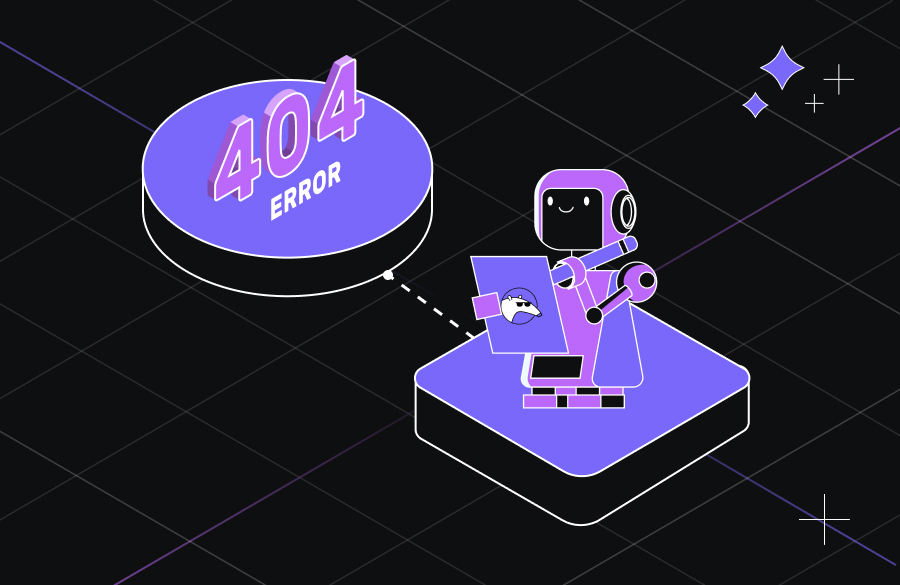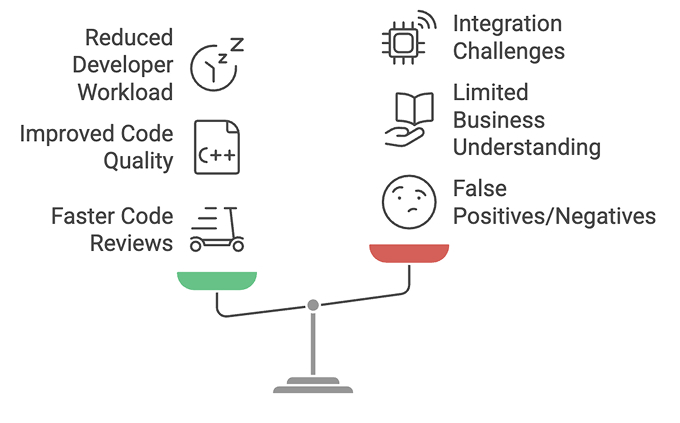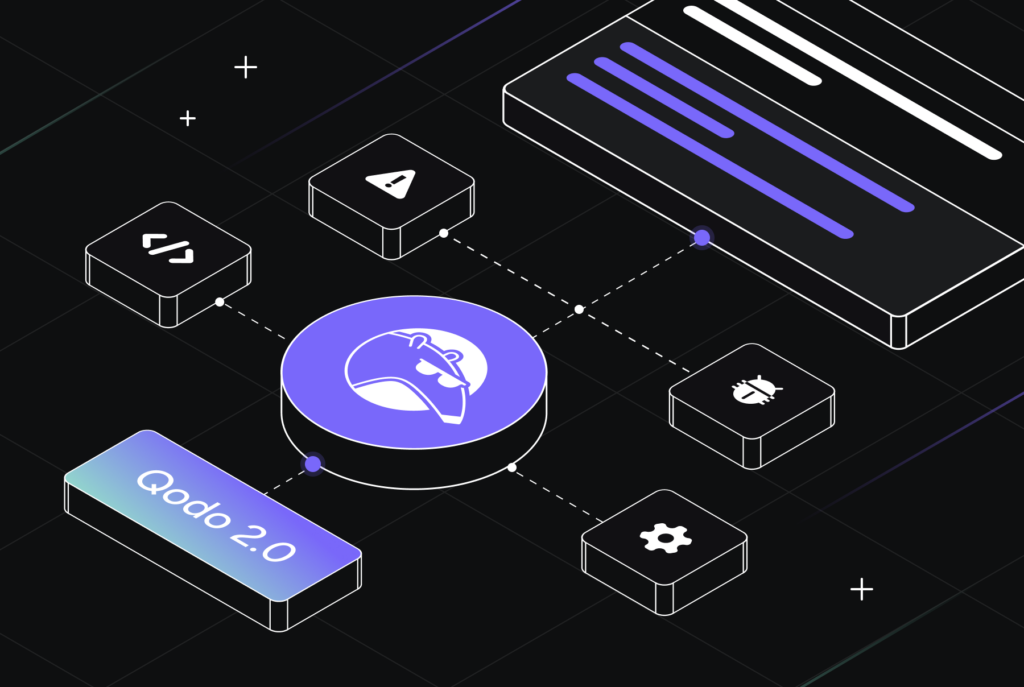How AI Code Review Agents Detect and Fix Common Coding Errors


Code quality is an important aspect of the software development life cycle. Initially, code review was a manual task performed by senior developers/tech leads and architects to ensure quality, security, and maintainability. With the growth of software projects and their increasing complexity, manual code reviews can be time-consuming, and some code can be inadvertently ignored. To prevent these issues, AI code review agents have come into play.
The Role of AI Code Review Agents in Development
AI code review tools use machine learning, natural language processing (NLP), and pattern recognition to analyze code for errors, vulnerabilities, and inefficiencies. AI-based code review agents help developers detect issues early in the development cycle.
AI agents for code review can be easily integrated with modern development workflows, such as GitHub, GitLab, and Bitbucket. As a result, developers are able to get real-time feedback and automated suggestions. Furthermore, time allocated for manual reviews can be used for task completion rather than debugging and code refactoring.
How AI Code Review Agents Work

AI code review agents use a combination of advanced technologies. The key components are listed below.
1. Static Code Analysis
AI-powered code review agents use static analysis to analyze source code without executing it. Agents parse the code structure, detect syntax errors, and identify logical issues based on predefined rules.
2. Pattern Recognition and Machine Learning
AI agents use machine learning models trained on a huge number of repositories of open-source code to recognize common programming patterns and deviations. These models will improve as they identify new codebases and learn from developer feedback.
Let’s look at an example. Below is the code to get squared numbers of a given array.
let numbers = [1, 2, 3, 4, 5];
let squaredNumbers = [];
for (let i = 0; i < numbers.length; i++) {
squaredNumbers.push(numbers[i] ** 2);
}
Instead of using a for loop, an AI agent would recommend using .map().
let squaredNumbers = numbers.map(n => n ** 2);
3. Natural Language Processing (NLP)
Using NLP, AI agents can understand comments, documentation, and code semantics. As a result, they can provide meaningful improvements rather than just identifying errors.
Let’s look at an example. In the code below, there is a comment saying that the method will multiply two numbers. But that comment is incorrect.
// multiplies two numbers
function add(a, b) {
return a + b;
}
An AI agent will provide suggestions on how to improve the comment.
// adds two numbers
4. Code Quality Metrics and Standards Compliance
AI code reviewers will evaluate code against best practices and coding standards, such as Google’s Java Style Guide, PEP 8 for Python, or the AirBnB JavaScript Style Guide. Based on those guidelines, they will provide feedback and validate all the rules, including indentation, string concatenation, etc.
5. Security Vulnerability Detection
AI agents have the ability to scan for security flaws such as SQL injection, cross-site scripting (XSS), etc. Let’s look at an example. The code below will introduce a SQL injection.
const user = req.query.user;
const query = SELECT * FROM users WHERE username = '${user}' ;
To prevent this, AI agents can suggest alternate code options like the one below.
const query = "SELECT * FROM users WHERE username = ?"; db.execute(query, [user]);
6. Automated Code Refactoring
Apart from detecting errors, AI code agents have the capability to refactor code, such as reducing complexity, improving function modularity, and removing redundant code.
Let’s look at an example:
if (user) {
if (user.isActive) {
return true;
}
}
return false;
An AI agent will provide a suggestion like this to optimize the code:
return user && user.isActive;
Common Coding Errors Detected by AI

1. Syntax Errors
- Missing semicolons or brackets.
//Problematic code let name = "AI_Agent" //Solution let name = "AI_Agent";
- Incorrect indentation.
//code with incorrect indentation async fetchValues(){ console.log("Example for common coding errors"); } //code with proper indentation async fetchValues(){ console.log("Example for common coding errors"); } - Unmatched parentheses.
//error scenario console.log("Example for common coding errors" //solution console.log("Example for common coding errors");
2. Logical Errors
- Use of incorrect conditional statements. In the example below, the if condition should be changed to
if (name="AI_REVIEW_AGENT") { let name="AI_REVIEW_AGENT"; if (name="AI_REVIEW_AGENT") { console.log("Example for common coding errors"); }
3. Performance Bottlenecks
- Inefficient algorithms.
//Inefficient solution const array1= new Array(1000000).fill(0); const filteredArray = array1.map(num => num * 2).filter(num => num > 0); //Efficient solution const filteredArray = array1.reduce((acc, num) => { let newNum = num * 2; if (newNum > 0) acc.push(newNum); return acc; }, []); - Having unnecessary, redundant loops.
let testArray= [1, 2, 3, 4, 5]; for (let i = 0; i < testArray.length; i++) { for (let j = 0; j < 1; j++) { console.log(arr[i]); } } // Second for loop is not necessary.
4. Security Vulnerabilities
- Having hardcoded credentials in source code.
const API_KEY = "authkey123"; export class AuthenticationService { getData() { return fetch(https://qodo.com/data?key=${API_KEY} ); } } - Un-sanitized input, which can introduce a SQL injection or XSS attacks.
//SQL Injection @Get(':id') async getUser(@Param('id') id: string) { return this.db.query(SELECT * FROM users WHERE id = ${id} ); } //Secure solution @Get(':id') async getUser(@Param('id') id: string) { return this.db.query(SELECT * FROM users WHERE id = $1 , [id]); }
Benefits of AI Code Review Agents
1. Faster Code Reviews
AI Code Review Agents can automate the review process, reducing the time required for manual reviews and the number of review cycles.
2. Improved Code Quality
AI code review agents will validate the code with best practices and guidelines such as Google’s Java Style Guide, PEP 8 for Python, or the AirBnB JavaScript Style Guide.
3. Enhanced Security
AI code review agents will identify security vulnerabilities early, which helps to make the code compliant.
4. Reduced Developer Workload
AI code review agents can be integrated with IDEs such as Visual Studio Code and IntelliJ. Furthermore, they can be integrated with GitHub, GitLab, and Bitbucket. They enable routine code checks, which help developers focus on implementing complex logic rather than debugging trivial issues.
5. Continuous Learning and Improvement
AI agents can improve over time by learning from past reviews and developer feedback. Based on past reviews, they can provide more contextually appropriate feedback.
Challenges and Limitations
1. False Positives and Negatives
AI code review agents can flag non-issues as errors or miss some coding mistakes. In such scenarios, it is better to have manual reviews.
2. Limited Understanding of Business Logic
Even though AI code agents have the ability to understand complex syntax and patterns, identifying business requirements is more challenging.
3. Integration Challenges
Some AI code agents are difficult to set up. They can require a lot of time to configure and integrate them into existing workflows.
4. Dependence on Training Data
For AI review agents to work accurately, a lot of training data must be obtained beforehand. Their performance is heavily dependent on the quality and diversity of the datasets on which they have been trained. Poor training data can lead to inaccurate suggestions.
Conclusion
Nowadays, AI-powered code review agents have become an important part of the software development life cycle. They can improve the code review process by automating error detection, enforcing best practices, and enhancing security. By integrating AI-driven reviews into development workflows, teams can significantly improve code quality, reduce the time taken for multiple review cycles, and reduce security risks.

AI coding agents can detect common coding errors, such as syntax errors, logical errors, performance bottlenecks, and security vulnerabilities. Automatic detection of these errors reduces the number of changes requested in code reviews. Apart from that, there are many more benefits of using AI code review agents, such as improved code quality and enhanced security.
Apart from benefits, there are challenges and limitations to using AI code review agents. For example, agents can generate false positives and negatives, and there can be integration and data training challenges. But, developers can tackle most of these challenges by using best practices.
However, AI review tools are not a complete replacement for human expertise. Developers should use AI Code review agents as well as manual reviews to achieve optimal results. In the near future, as AI continues to evolve, we can expect even more sophisticated tools that will eventually eliminate manual code review.


